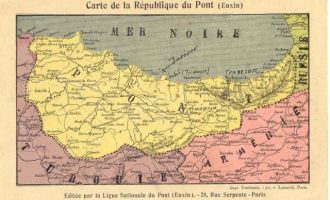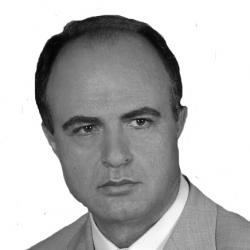
 ΔΕΙΤΕ ΠΡΩΤΟΙ ΟΛΑ ΤΑ ΝΕΑ ΤΟΥ TRIBUNE ΣΤΟ GOOGLE NEWS
ΔΕΙΤΕ ΠΡΩΤΟΙ ΟΛΑ ΤΑ ΝΕΑ ΤΟΥ TRIBUNE ΣΤΟ GOOGLE NEWS 
Every May 19, the collective conscience of Hellenism groans —not from forgotten pain, but from a memory that burns bright, stubborn, and unrelenting.
The Pontic Genocide is no mere historical footnote. It is a scar etched into the nation’s flesh, a cry that pierces time, demanding Justice, Truth, and Recognition.
From 1914 to 1923, over 353,000 Pontic Greek Christians were annihilated by Kemalist and Ottoman forces through massacres, death marches, enslavement, and deportations.
This was no chaotic byproduct of war but a systematic, orchestrated campaign to erase a people who had thrived for millennia along the Black Sea coast.
The Pontic Greeks, bearers of culture, philosophy, education, and faith, were targeted not just for extermination but for oblivion.
May 19 [19 May 1919], the day Mustafa Kemal landed in Samsun to launch his “national struggle,” is seared into history as a day of remembrance and testimony.
It stands as the dark mirror of freedom —the starting point of a plan fueled by the worst impulses of history: ethnonationalist fanaticism, state-sponsored violence, and militaristic myth-making.
Today, we must call things by their name. Not “conflicts,” not “tragedies,” not “population transfers.” It was Genocide. Silence kills twice —first the dead, then the truth.
Those who choose to forget or conceal bear complicity not only in the crime but in its potential repetition. Every unpunished genocide paves the way for the next.
The memory of the Pontic Greeks is not a revival of grief but a purifying call to struggle and honor. It is the antidote to historical amnesia, proof that Hellenism is not a museum relic but a living consciousness that resists oblivion and speaks when others fall silent.
We honor the dead not with tears alone but with action: by demanding international recognition of the Genocide, educating the young, and restoring Historical Truth. For without Justice, there can be no Peace.
As the Pontic Greeks say: “Though Romania has passed, it blooms and bears anew.” Memory is Power. And Power begets Justice.
Historical Note: May 19 was established as the Day of Remembrance for the Pontic Genocide by Law 2193/1994, unanimously passed by the Greek Parliament on February 24, 1994, under the PASOK government and Prime Minister Andreas Papandreou. The date was proposed by philosopher Michalis Charalambidis, who, since the 1980s, was the first to articulate the Pontic Genocide in political and scholarly terms. Through tireless advocacy, he brought the issue to the forefront of national discourse, mobilizing institutions, parties, and the state.
Pontic Greek Muslims in Turkey: Today, an estimated 300,000 to 500,000 Pontic Greek Muslims —descendants of Greek-speaking Pontians who converted to Islam, primarily during the Ottoman era or survived persecution through conversion in the 20th century— live in Turkey, with some independent estimates suggesting up to 700,000.
Many still speak the Pontic dialect, heavily influenced by Turkish, known as “Romeïka.” While Muslim by faith, they preserve cultural and linguistic traces of their Greek heritage, especially in oral traditions.
In recent years, younger generations have shown renewed interest in their linguistic and cultural identity. Though not considered “diaspora” in the strict sense, some acknowledge their Greek roots, with instances of reversion to Orthodoxy, hidden Christian practices, or visits to Greece in search of relatives or heritage.



